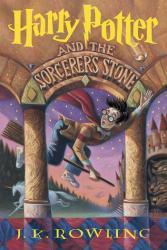
5 stars(A magical book)
Welcome to a magical world, filled with witchcraft, wizardry, dark magic, and wonder. This book starts off with Harry Potter, a boy close to the age of 11, being bullied by his only family about how strange he is. It follows him as he enters a mysterious school, learning more about why he is so strange. I enjoy this book because of the many different aspects of mystery there are. I would recommend this book to any person looking for a magical read.
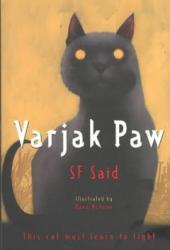
4 stars (little young for me).
Varjak Paw is a fantasy written from the point of view of a cat. This book caught my attention because it was about a cat descended from a family of ‘special’ cats, who has passed down mysterious knowledge, dubbed ‘The Way’. It starts off in a household full of cats with an absent owner, possibly sick, possibly dead. Varjak Paw is the runt of the family, a cat who itches to discover what's on the other side of the wall. I enjoy rereading this book because of how well written the storyline is. The different pieces fit together perfectly in a puzzle.
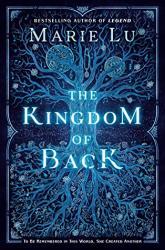
The Kingdom of Back is a historical fantasy novel about Wolfgang Amadeus Mozart and his sister, Maria Anna Mozart. Told from the perspective of Maria Anna (nicknamed Nannerl), this novel gives readers the untold story of her musical success and childhood fame. As a girl in the eighteenth century, Nannerl knows it will never be socially acceptable for her to compose like her brother, so she makes a wish--which leads her to a mysterious land of faeries and moonlight and castles, and a magical boy who promises to fulfill her wish if she helps him in return.
As the plot unfolds, readers are given a look into the life of the Mozarts and their grand tour around Europe to play for the most esteemed audiences. Both Nannerl and Wolfgang (Woferl) are incredibly impressive child prodigies; though Wolfgang is who comes to mind when we think of the name Mozart, his sister was also a musical genius. This book highlights Nannerl's perspective very well, diving into her insecurities and fears as well as her dreams. The fantasy aspect added an interesting element to Nannerl's story; I enjoyed Lu's vivid descriptions of the Kingdom, and the fantastical side of the plot permeated the historical one in a clever, well-thought-out way. The novel ends with a creative twist, leaving readers to think back over the whole story in a different way.
My only issues with this book were the repetitiveness of descriptions and thoughts, and the fact that the fantasy plot seemed very predictable until I reached the twist. But overall, I loved how well the fantasy and historical fiction elements blended together, and that Lu shed so much light on the power of music. This novel is perfect for anyone who enjoys fantasy, music, and history. Nannerl Mozart's story is one you won't forget.
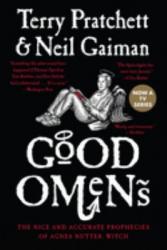
Perhaps I’m in the minority here, but I only thought Good Omens was just OK. You’d think that the combination of two of the best British writers would create an incredible story, but I felt it was mostly disjointed, un-climatic, and full of that British humor that tends to be more random than based in actual jokes. Granted, most books by Terry Pratchett or Neil Gaiman that I’ve read have been hit or miss, depending on how peculiarly random the subject might be. Sure, there are elements of a great story here; it just felt distracted from its main purpose half of the time.
The core of Good Omens is split into two parts: following the actual Antichrist who is unaware of his theological significance/role in the end of the world and the journey of an angel and a demon who happened to lose said Antichrist. This idea's strength is enough to give the story some merit, but the execution seemed flawed to me. Too much time was spent in random and meaningless interactions that didn’t add to the story other than to be “humorous” for their pure obscurity. If anything, this type of humor is standard for Pratchett, so I’m not surprised it was there, just disappointed that it seemed to play such a large part of the story.
I’m sure most people loved the relationship between the angel and the demon, but I almost found the actions of the unaware Antichrist to be much more interesting and would have liked that those parts of the book played more in the plot than just being a side story. I know Amazon made a television show of this book, so maybe I just missed something that the show might be able to reveal to me as to why this book was so popular. As for me, it was just kind of “meh.” An interesting plot that suffers from British humor, I give Good Omens 3.0 stars out of 5.
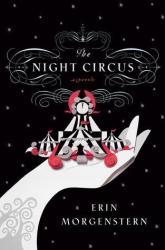
The Night Circus, by Erin Morgenstern, is a beautiful, exquisitely written, spellbinding novel of magic, love, and a special circus only open at night.
Celia and Marco are two young magicians, students of respective magical instructors, one of whom is Celia's father. These magicians, fierce rivals for decades, propose a challenge-- an ambiguous feat where the two magicians compete against each other in an expansive setting. At the same time, a theatrical producer, Chandresh Christophe Lefevre, creates his newest masterpiece-- The Night Circus, an expansive theatrical production, where the theatrics are not confined to the stage. Celia and Marco become involved in this circus through the will of their instructors. Celia becomes the illusionist, disguising her magic powers as stage illusions. Marco becomes an assistant to Chandresh, running the circus from the inside, and helping with the coordinated particulars instead of traveling with the circus like Celia.
The competition within the circus begins, Celia and Marco creating new tents in an attempt to outdo each other until one is declared a victor. And slowly, as they begin to realize that the other is their opponent, Celia and Marco fall in love, which sets off a chain of devastating events for the circus and all of the people in it.
Erin Morgenstern is a fantastic writer. Her sumptuous prose is gorgeous, and her level of detail in describing the circus makes it feel as if she had actually visited this place herself instead of creating it in her head. Even the smallest atmospherical details of the circus are mentioned, and such a rich and vivid setting envelopes the reader into the book. The story within the gorgeous setting, that of Celia and Marco, is exquisite. The book takes pace over a vast expanse of years, allowing them to grow and change and mature within their characters as the challenge progresses and they begin to fall in love with each other. Watching Celia and Marco grow throughout the novel from children to finally finding each other was a very satisfying process in the story.
The story does jump, from the main story of Celia and Marco to the story of Bailey, a young boy on a farm in Concord, Massachusetts, who visits the circus and becomes enamored with it, until the time of both stories intersect and Bailey's life crosses with Celia and Marco's.
I cannot say enough good things about The Night Circus. The story, the setting, the writing, and the characters are all wonderful. This book is such a gem, and I would recommend it to anyone who enjoys fantasy, romance, or just a good story. The Night Circus, with it's gorgeous setting and wonderful prose, is the kind of book every reader longs to read-- the kind of book that envelopes the reader into the world created in the story, one that readers will not want to leave long after the last page finished.
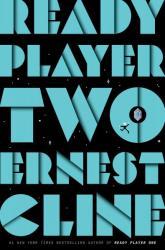
Ernest Cline has written another masterpiece. While Ready Player One could have remained a stand-alone novel, Ernest Cline has given us a better look into his dystopian universe with this sequel. After James Halliday posthumously releases another quest, The High Five must once again unite to solve all of the riddles. However, this time the stakes are higher as the lives of the majority of OASIS users are on the line. With adventures that include John Hughes movies, Prince, The Lord of the Rings, and many more pop-culture references, Ready Player Two is a thrilling action-packed adventure. I highly recommend this novel for any middle school or high school aged reader, or any lover of pop-culture from the later part of the previous century.
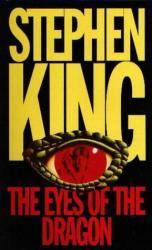
5 stars(Gets a little dark, but that's to be expected from Stephen King)
The Eyes of the Dragon is about a royal family with its kingdom being torn down by a powerful Court Magician. The opening description is awesome and the characters are well sculpted. Stephen King describes the jealousy between the princes Thomas and Peter darkly and realistically. This realism made it a compelling read. I enjoyed this book so much that I finished it in one night. It is a great story with many twists and turns. I highly recommend this book to whomever wants to get into Stephen King’s works.
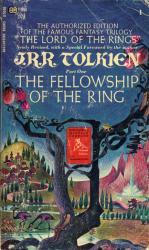
The Fellowship of the Ring is about a company of people of different sizes, shapes, and cultures, living in an imaginary world: Middle Earth. These people come together when Bilbo Baggins, a hobbit, runs away from his house after his 111th birthday, but he leaves behind the Ring of Power. Hobbits are short people who live in Hobbiton, a place in Middle Earth. The Ring of Power is a ring that one of the antagonists, Sauron, created for the destruction of Middle Earth.
The company now comes together to destroy this Ring, but it can’t be destroyed with ordinary means, like stomping on it or casting it into fire. The ring can only be destroyed if it is thrown into the place it was created at, Mount Doom, a volcano in Sauron's evil layer known as Mordor. The company knows that Sauron will search all of Middle Earth for the Ring, so the company decides to take it to Mount Doom.
At a petrifying moment, the company goes over a mountain range, but it is too cold for people to survive, so they head to the Mines of Moria, an underground series of tunnels. Everything was going fine until a person accidentally made noise by throwing something down a well. Then, they have to run to the exit because they awakened their evil pursuers, like the Balrog of Moria, a giant humanoid creature with a whip. The Balrog drags a member of the company down a cliff, and they fall for over 8 whole days.
This book is full of fantasies, and it really holds a grip and is hard to put down, and for that reason, I'm going to go with 4/5 stars for The Fellowship of the Ring.
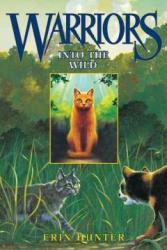
I read this book when I was in the 3rd grade. I loved cats, so this series seemed really interesting. The series “Warriors” is HUGE!! There are so many books, and after reading “Into the Wild” I read all of them. This book is about a normal house cat named Rusty. He finds out about a group of cats that live in the wild. His curiosity lures him ‘into the wild’ to be with the warriors. For my third grade self, this book was the coolest thing ever! There’s drama and a mystery. While I definitely think that the target audience for this book is probably late elementary to middle school, this is a good read for anyone. I loved this book, and would highly recommend to anyone who loves cats and has a good imagination!
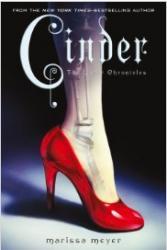
For years, I had heard of The Lunar Chronicles and thought people were referring to the two Sega Saturn video games, Lunar: Silver Star Story and Lunar 2: Eternal Blue. However, seeing as most people haven’t heard of these video games, I eventually figured out that they referred to the Young Adult series of books. While 2012 was definitely around the height of the re-imagined fairy tale craze, I do have to admit that this science-fiction take on these classic stories is a fresh new way of adapting the plots that we all grew up with through Disney movies.
The first book in the series, Cinder, takes Cinderella's down-and-out heroine and updates her to a cyborg unaware of her royal origins. What made this story engaging was figuring out how the standard trappings of the Cinderella story would be adapted to this futuristic setting. Granted, this made some of the plot points more than obvious well before they happened, but I usually ended up smiling at the bits of homage that Cinder paid to its origins—such as a “pumpkin” of a car and the leaving behind of certain footwear.
While the plot was mostly predictable, I appreciated the awkward “teenager” dialogue of the titular protagonist but only to a point. I’ll admit that YA books have a kind of frenetic style that matches their main characters' emotional turbulence, and Cinder certainly reads like a teenage girl replete with the insecurities, slang, and missed steps that a full-grown adult wouldn’t necessarily have as character quirks. The problem is that having to follow such a snarky young individual for so long through the story makes it eventually grate on my nerves, especially when the path she needs to take in her life is so obvious. Then again, perhaps I’m just a crotchety old man who isn’t in-tune with the youth anymore.
A great sci-fi Cinderella retelling, I give Cinder 4.0 stars out of 5.

A Wrinkle in Time is unlike any Science Fiction novel I have ever read. It is exciting and scientific and even a little romantic like every other science fiction novel, but it grapples with other ideas like how one thing (yet to be revealed) helps to conquer the darkness inside us and all around. It follows Margaret (Meg) Murry in the search for her missing father but at the same time follows a search in understanding herself. She wants more than anything to find her father because he was the one who made her feel like herself and now that he is gone, she feels lost. Her genius younger brother Charles Wallace is a major player in Meg's journey to find herself and in the end is what will trigger the one thing she has that the darkness does not.
I first read this book in third grade as required reading, but since then I have probably read it over ten times. It is one of those books that you get something new out of every time you read it. I have also never read such a creative book. Madeleine L'Engle makes it interesting and unpredictable while at the same time tying in internal struggles. Everyone can relate to Meg and will learn from her struggles by reading this book.
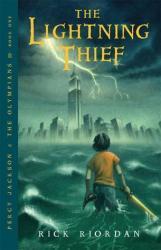
The Lightning Thief is a book starting with the premise that the Greek Gods are alive, and Percy Jackson is thrown into the middle of a war between them. Rick Riordian blends Mythological details with humor and regular teenage actions into an otherwise peaceful world. The main reason I liked this book was that you learned about the ancient Greek Gods while reading a fun book. If you read this one, I would highly recommend reading the other four books, as well as The Heroes of Olympus series.
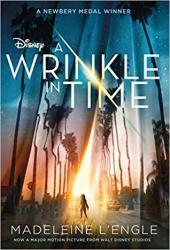
A Wrinkle in Time is an amazing book that brings fantasy mechanics into science, and makes it as real as possible. It starts off with Meg, a brilliant child in a family of brilliant people, who is struggling with grades. She blames it on herself, but she goes on and explains that it's because her father suddenly left, upsetting her natural world. A Wrinkle in Time brings together amazing description techniques, and interesting science mechanics, with quite a bit of humor. Overall, this book is one of my favorites of all time.
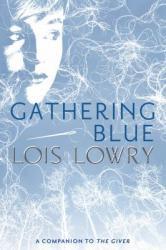
Gathering Blue is the second book of The Giver quartet by Lois Lowry. Although it has different characters and a different setting than the preceding book, Gathering Blue has just as much to love and cherish. Similar to The Giver, Gathering Blue has themes of secrecy, dystopia, and destiny. The protagonist, Kira, questions her authority's judgments and cares deeply for the safety of her friends. Lois Lowry delivers convincing worldbuilding, relaxing scenes, and sequences, and charming characters. The book itself can be slow at times but is balanced by moments of suspense and short escapades.
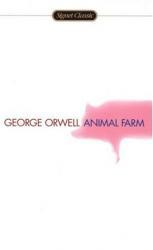
Animal Farm by George Orwell is a chilling tale of animals' uprising against humans to form an idyllic society. Without the rule of humans, animals expect equality, prosperity, and utopia. Over the course of this fable, however, the characters slowly devolve into new forms of oppression, greed, and violence against one another. Each chapter is more suspenseful than the last. The book is not entirely scary, but unsettling more than anything else. Orwell writes characters who are worth caring about, and antagonists that are easy to dislike.
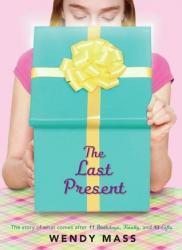
The book The Last Present follows around a group of teens that know things other people don't and two of them are able to go back in time. I really enjoyed the book and thought everything tied into each other well. While at times it can be a little confusing what is happening or why they do what they do, you end up always getting the answers. The author did a great job of making sure all the details made sense and that all the little details were included. While it is a series I had not read the other books and it made perfect sense. I would recommend this book to anyone looking for a good book that will take you on a ride of twists and turns.
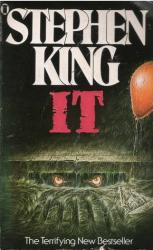
"It" is a really good book! Although its over 1000 pages it all of it is really good! "It" is about a group of kids that live in Derry Maine. The main character, Bill, looses his brother to Pennywise the clown who terrorizes the kids of Derry every 27 years. Bill and his friends Richie, Eddie, Beverley, Mike, Ben, and Stanley try to stop Pennywise. The book's cool because it also goes back and forth between the characters when they were kids in the 1950's and when they're adults in the 1980s. Lastly, even though its from Stephen King and is a famous "horror" novel, in my opinion its not very scary. If you like stories about kids going on an adventure, then this book is for you!
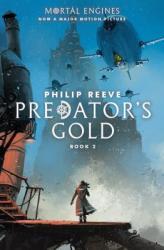
Taking place a few years after the events of Mortal Engines , I was aided somewhat in my read-through of Predator’s Gold by the fact that I didn’t have a movie to compare against. While the first book in this series helped set the stage, I felt the real story didn’t start until book two. After all, this series really is about the relationship between Hester and Tom. In Mortal Engines, they had only just met; in Predator’s Gold, we see how far they’ll go for each other, even if most of the story beats are somewhat predictable.
I appreciated how thoroughly real this ridiculous concept of monstrous towns roaming the world and devouring each other seems in this book. This post-apocalyptic setting felt thought-out by adding the main setting of Anchorage and the introduction of a charlatan author who cons everyone around him for his sole benefit. So often, an additional concept is added to the world-building, and I’d think, “That makes sense in this context.” I also appreciated how previous ideas were integrated into this story, showing how nothing is a “throwaway” idea.
Despite the excellent world-building, the root of this story is Hester and Tom’s relationship. While the more “romantic” elements were merely alluded to—as this is a series meant for children, after all—I was slightly annoyed with how stubborn these two characters were. If they’d been together for a few years, you’d think they’d have figured out some of these simple relationship issues before they become lynchpins tied to the survival of entire cities. I also felt the “will of God” was in a lot of the plot developments, as these two characters always seemed to be brought to the right place at the right time so they could continue to be together.
Excellent world-building with so-so character relationships, I give Predator’s Gold 3.5 stars out of 5.
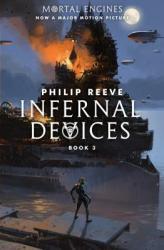
Wow. OK. Maybe this series isn’t for children as much as I thought it was. Sure, a post-apocalyptic world has many subjects that can be considered dark—death being the main one—but Infernal Devices certainly went all in here and pushed the ugliness of humanity to the forefront of the plot. Of course, one wonders if the POV change to focus on the progeny of the two characters who comprised the first two books is part of why the tone of this book changed so drastically. Sure, there was violence in the previous two books; it just didn’t seem so gratuitous then. Aside from all the killing, which I suppose was meant to signify Hester’s character development, there wasn’t too much new in terms of world-building in this book. I appreciated all the developments in Mortal Engines and Predator’s Gold, but the addition of the African and Middle Eastern cities didn’t expound the “city-eat-city” world that much. Sure, there was more exploration of the Lost Boys concept, but it didn’t necessarily go any deeper than the basic idea presented in Predator’s Gold.
Despite the huge time gap between book two and Infernal Devices, I did find a few things to stand out in this part of the series. First was the epic battle between automatons. I felt the action in this scene, along with the other action scenes in this book, were well-described. Second, I don’t want to give away too much, but the twist ending was a bit of a shock—even if it made complete sense. For a series that usually hits many clichés and tropes of relationships, I was honestly shocked that the author went for this ending. Of course, the ending also leaves things unresolved enough to require another book, so there is that aspect to it which I can understand.
A jump ahead in time and the amount of violence, I give Infernal Devices 3.0 stars out of 5.
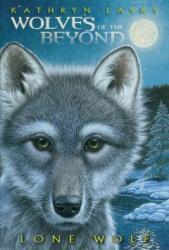
This series is one of my favorites. It's about a world where animals preside, and wolves are the main focus. The detail in this is amazing and the interactions are realistic. While there are elements of fantasy, it still feels like the real world. I got lost in this book the first time I read it because of how beautifully she wrote the characters, they just seemed to come alive. If you want a good read about intelligent wolves in a fantasy land, read Wolves of the Beyond. The first book is Lone Wolf.


